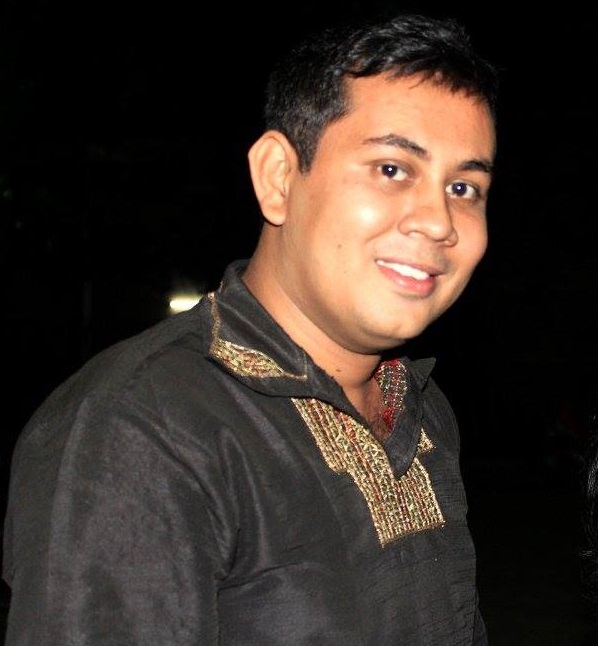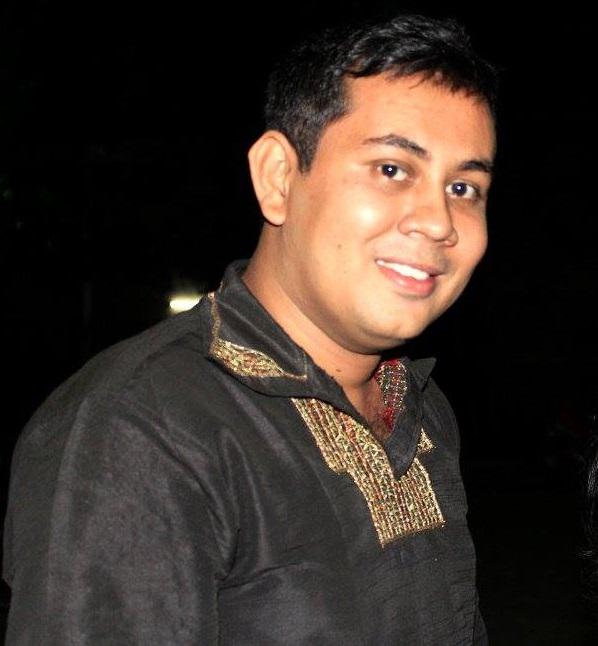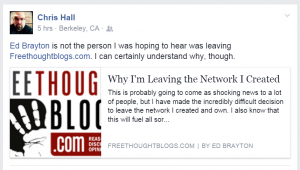A blogger on the plight of secular bloggers in Bangladesh:
Again! Again, murderous violence against a secular, atheist blogger by vile, despicable Islamic extremists in Bangladesh!
The shocking news brought a sense of overwhelming numbness that altogether masked my usual emotional reactions at such news – bitter sadness, frustration and impotent rage, and eventually resigned acceptance. This was the fifth such incident since February 2013 – a secular blogger violently cut down in his prime for daring to express his views championing secular humanism, science and rationality; Rajiv Haidar, Avijit Roy, Washiqur Rahman, Ananta Bijoy Das, and now, Niloy Chatterjee – popularly known by his pen-name, ‘Niloy Neel’. Another such blogger, Asif Mohiuddin, had thankfully survived being stabbed in January 2013.
Who is doing it? Religious fanatics, for the flimsiest of reason, on the emptiest of instructions.
Washiqur Rahman was a complete stranger to the men who perpetrated the fatal machete attack on him; they – confessed the two who were later arrested by the police – didn’t even know his face, or know of him, and weren’t familiar with his work, until it all was pointed out to them. Yet, when told that Rahman had insulted Islam and the Prophet, these men executed him without a shred of remorse – because they were made to believe that it was their divinely-mandated duty to take the life of another.
They were told to, so they did. It was that simple. A valuable, useful life was chopped short, over an imagined “insult” to a religion and a long-dead human.
Niloy Neel was many things to many people; a blogger, author, an activist engaged in various social justice causes, and the founder of the Bangladesh Science and Rationalists Association. His online writings touched upon diverse topics, philosophy, religions, social issues such as feminism, equality, gay rights, and so forth; he was a critic of religious fundamentalism, including Islamic fundamentalism, and relentlessly pointed out inconsistencies in religious edicts, superstitions, and other social ills. It was for his writings that he was deemed to have forfeited his life by divine fiat, and he was brutally murdered inside his residence – while his family was present at home – by assailants belonging to Ansar Al Islam, the Bangladesh branch of Al Qaeda in the Indian Subcontinent (News report in Bangla here).
Writers are dangerous. Writers must be stopped. Writers are Problematic Persons.
This pattern of grievous violence by Islamic extremists in Bangladesh has by no means been restricted to secular bloggers alone, but was visited upon several of Bangladeshi activists, professors and authors deemed to be critical of Islam in any way. The predicament of Bangladeshi author, atheist and rationalist freethinker, Taslima Nasrin, continues to haunt her. What does one do… How does one counter effectively the mindless, thoughtless, remorseless adherents of a bloodthirsty, obscurantist ideology, hell bent upon silencing any and all critics through savagery?
I wish I knew. Massive funding of schools would help, because people send their children to madrassas simply because the schools are no good. (The madrassas are worse than no good, but the parents don’t know that.) Cutting off funding from Saudi Arabia would help. But both of those are pipe dreams…
Violent extremists pose a serious challenge to the governance of the entire country, and so far, unfortunately, the Bangladesh government has failed to acquit itself well. In an interview with BBC Trending after Niloy Neel’s murder, Bangladesh’s Minister of Information, Hasanul Haq Inu, denied the accusation that the government has been suppressing secular voices, choosing to justify instead the nebulous and draconian laws against ‘hurting religious sentiments’.
Sigh. Laws against “hurting religious sentiments” simply fuel the very kind of fanatical punitive rage that got the bloggers hacked to death.
At the end there is a list of other blog commentary:
- Blogger/author and Economist Prabirendra Chatterjee has excoriated the inability and unwillingness of the Bangladesh government to honor its Constitutional mandate to protect its citizenry from the forces of religious bigotry and intolerance.
- Blogger/Cricket Historian and statistician Abhishek Mukherjee has penned a fictional account of this tragedy, indicating the view that there may bepossible political machinations behind the silhouette of religion leading to these systematic murders.
- Blogger/author and management professional Tanmay Mukherjee has expressed his angst in his inimitable style, with fiction depicting the eternal tussle between belief and non-belief.
- Blogger/author and statistician Tapabrata Banerjee has succinctly jotted down the same thoughts about a fear-stained uncertain future that is currently flitting through the minds of many, but he – like many of us – remains hopeful.
- Blogger/author/publisher and software professional Rohon Kuddus has eloquently expressed how he finds no consonance between his own understanding and experience of Islam and the warped, murderous ideology espoused by those who spew bilious hatred and their oblivious followers.







